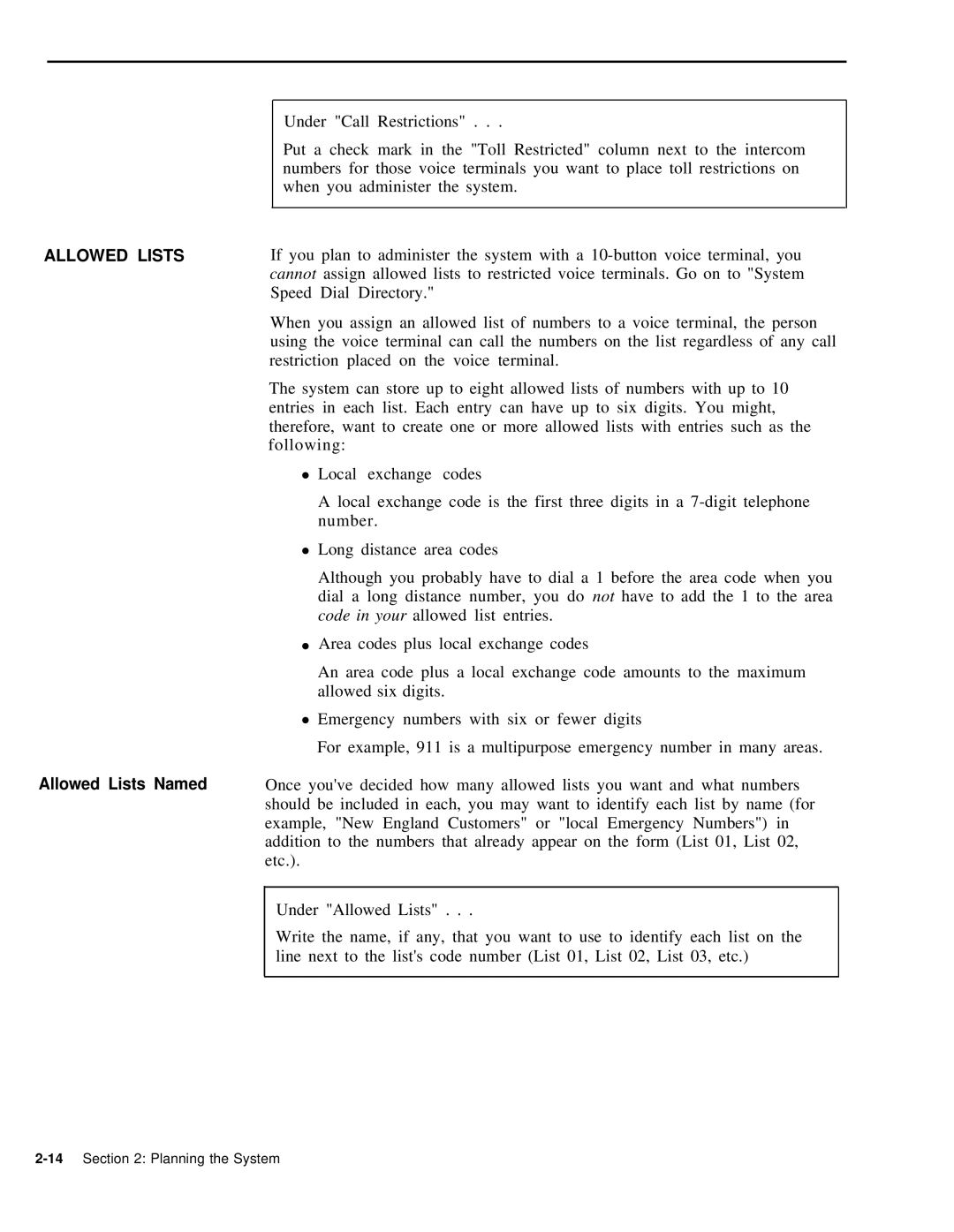
ALLOWED LISTS
Allowed Lists Named
Under "Call Restrictions" . . .
Put a check mark in the "Toll Restricted" column next to the intercom numbers for those voice terminals you want to place toll restrictions on when you administer the system.
If you plan to administer the system with a
When you assign an allowed list of numbers to a voice terminal, the person using the voice terminal can call the numbers on the list regardless of any call restriction placed on the voice terminal.
The system can store up to eight allowed lists of numbers with up to 10 entries in each list. Each entry can have up to six digits. You might, therefore, want to create one or more allowed lists with entries such as the following:
●Local exchange codes
A local exchange code is the first three digits in a
●Long distance area codes
Although you probably have to dial a 1 before the area code when you dial a long distance number, you do not have to add the 1 to the area code in your allowed list entries.
●Area codes plus local exchange codes
An area code plus a local exchange code amounts to the maximum allowed six digits.
●Emergency numbers with six or fewer digits
For example, 911 is a multipurpose emergency number in many areas.
Once you've decided how many allowed lists you want and what numbers should be included in each, you may want to identify each list by name (for example, "New England Customers" or "local Emergency Numbers") in addition to the numbers that already appear on the form (List 01, List 02, etc.).
Under "Allowed Lists" . . .
Write the name, if any, that you want to use to identify each list on the line next to the list's code number (List 01, List 02, List 03, etc.)
